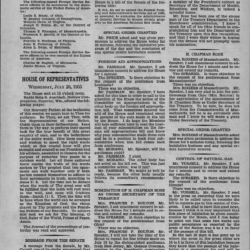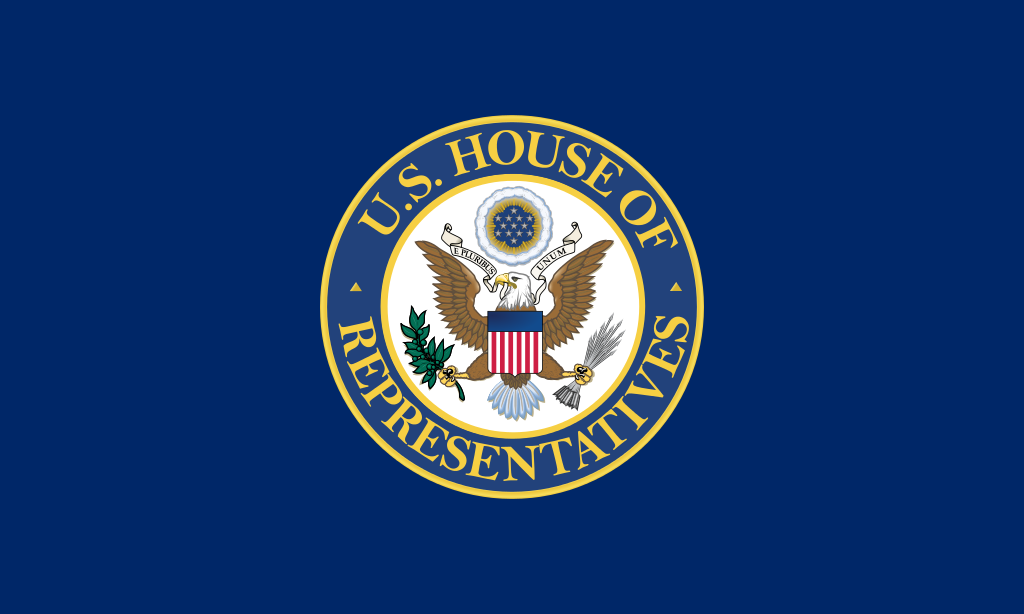Sponsor: n/a
Date of Prayer: 20 July 1955
| Contribute a translation | Source (English) |
|---|---|
|
|
Our Heavenly Father,
at the beginning of this session we again turn to Thee for guidance. |
|
|
Be Thou, we ask Thee,
with the Representatives of our Nation. Guide them in their deliberations. Lead them in Thy way, to perform their sacred task for the true benefit of this great country of ours, and to the betterment of the entire world. |
|
|
Give them courage and wisdom
to speak the right words which at this crucial hour will give strength and council to our President and his advisers, assembled in Geneva for the purpose of restoring true peace to a stricken world.[1] This was the Geneva Summit (1955), a Cold War-era meeting in Geneva, Switzerland. Held on July 18, 1955, it was a meeting of “The Big Four”: President Dwight D. Eisenhower of the United States, Prime Minister Anthony Eden of Britain, Premier Nikolai A. Bulganin of the Soviet Union, and Prime Minister Edgar Faure of France. The first such meeting since the Potsdam Conference ten years earlier, the purpose of the Summit was to bring together world leaders to begin discussions on peace. Although those discussions led down many different roads (arms negotiations, trade barriers, diplomacy, nuclear warfare, etc.), the talks were influenced by the common goal for increased global security. |
|
|
Let all those gathered there
realize the truth of the words spoken by Thy prophet that two opponents can walk together only if both parties commit themselves to adhere to their agreements in truth, according to Amos 3:3. |
|
|
Let the time not be distant
when the words of Thy great seer will be fulfilled that the lamb will rest next to the wolf, and none will frighten them (Isaiah 11:6). Then the time will be here when the world can be arranged as the Kingdom of God; the vision shared by Thy prophets and the Founding Fathers of our Republic. To achieve this task we ask for Thy blessing, O God, Ruler of the World, Prince of Peace.[2] The employ of the translation “Prince of Peace” based on שַׂר־שָׁלֽוֹם from Isaiah 9:5 is remarkable in a Jewish prayer, since this usage is widely understood by trinitarian Christians to refer to their messianic deity. Possibly it is here offered as an extraordinary ecumenical gesture. If anyone can help to explain this further, please leave a comment or contact us. –Aharon Varady Amen. |
This prayer of the guest chaplain was offered in the seventh month of the first session of the 84th US House of Representatives, and published in the Congressional Record, vol. 101 part 9 (20 July 1955), page 11051.
Source(s)
Notes
| 1 | This was the Geneva Summit (1955), a Cold War-era meeting in Geneva, Switzerland. Held on July 18, 1955, it was a meeting of “The Big Four”: President Dwight D. Eisenhower of the United States, Prime Minister Anthony Eden of Britain, Premier Nikolai A. Bulganin of the Soviet Union, and Prime Minister Edgar Faure of France. The first such meeting since the Potsdam Conference ten years earlier, the purpose of the Summit was to bring together world leaders to begin discussions on peace. Although those discussions led down many different roads (arms negotiations, trade barriers, diplomacy, nuclear warfare, etc.), the talks were influenced by the common goal for increased global security. |
|---|---|
| 2 | The employ of the translation “Prince of Peace” based on שַׂר־שָׁלֽוֹם from Isaiah 9:5 is remarkable in a Jewish prayer, since this usage is widely understood by trinitarian Christians to refer to their messianic deity. Possibly it is here offered as an extraordinary ecumenical gesture. If anyone can help to explain this further, please leave a comment or contact us. –Aharon Varady |




